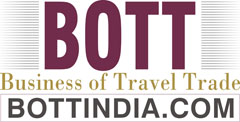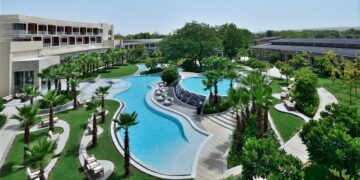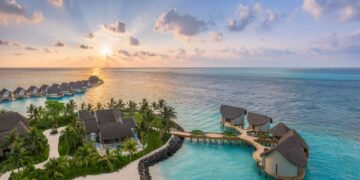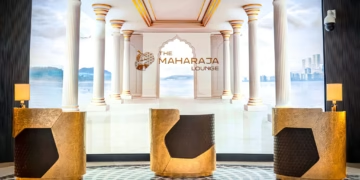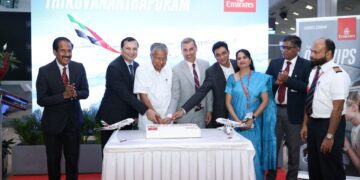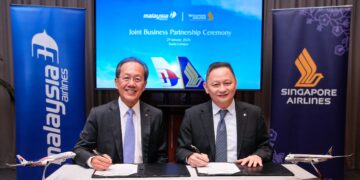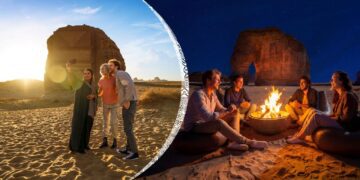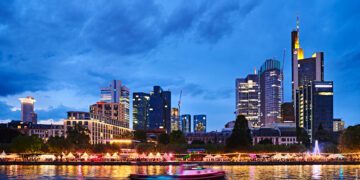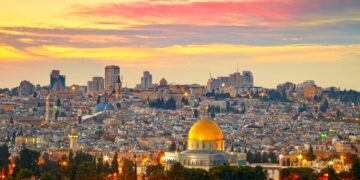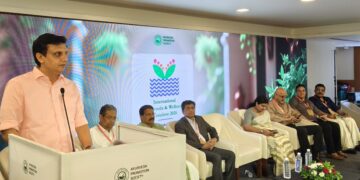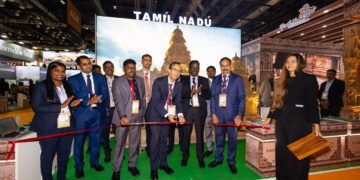 In the current global landscape, how significant is India as a source market for your destination? What were the visitor arrival numbers from India in 2023, and what are your projections for 2024?
In the current global landscape, how significant is India as a source market for your destination? What were the visitor arrival numbers from India in 2023, and what are your projections for 2024?
India has long been a pivotal source market for Sharjah, reflecting the deep cultural and economic ties between our regions. In 2023, Sharjah saw a substantial influx of 163,329 Indian visitors, marking a 5% increase from the previous year and securing an 11% share of our total market. India has also ranked among the top five key markets for Sharjah. This consistent growth underscores the appeal of Sharjah as a destination for Indian travellers.
Looking ahead to 2024, the momentum continues to build. In the first quarter alone, we welcomed 37,680 Indian visitors, affirming India’s status as one of our most significant markets. As we move forward, our strategy is to maintain this upward trajectory by implementing a series of targeted initiatives. Our goal is not just to attract more Indian tourists but to ensure that their experiences in Sharjah are memorable, fostering long-term loyalty to the emirate.
What promotional and marketing strategies have you developed for the Indian market to engage with modern-day travellers?
India is a rapidly growing source of outbound tourism, with Indian tourists projected to make 80 to 90 million trips annually by 2040, according to McKinsey & Company. We see tremendous potential in this market and are eager to tap into it.
Modern travellers, especially from India, are increasingly seeking unique and authentic experiences that resonate with their personal interests in culture, art, food, and accommodation. Sharjah is well-positioned to meet these expectations, offering a diverse array of attractions that cater to these evolving preferences. To engage effectively with this dynamic market, we have crafted a comprehensive marketing strategy that highlights Sharjah’s unique offerings. This includes promoting new and exciting attractions such as the Sharjah Safari—the world’s largest safari park outside Africa—and other adventure and leisure destinations like the Mleiha Archaeological and Eco-tourism Project. These attractions align perfectly with the preferences of Indian travellers, particularly the younger demographic, who are drawn to exclusive experiences, luxury, and adventure sports.
Our promotional and marketing efforts in India are multifaceted. We conduct annual roadshows across major Indian cities, showcasing Sharjah’s growing tourism potential and new leisure projects. These roadshows are complemented by participation in prominent trade fairs, familiarisation trips for Indian media and influencers, and collaborations with travel trade partners. Through these initiatives, we aim to create a compelling narrative that positions Sharjah as a top-of-mind destination for Indian travellers, ensuring they are well-informed and inspired to explore the emirate.
What global best practices in sustainability and environmental initiatives are you intending to implement this year?
According to Allied Market Research, the value of the global sustainable tourism market is expected to reach $11.4 trillion by 2032. We recognize the significant opportunities in this market and are keen to capitalise on them.
Sustainability is at the heart of Sharjah’s tourism strategy, reflecting the global shift towards eco-friendly travel. As the demand for responsible tourism grows, Sharjah is committed to implementing best practices that prioritise environmental stewardship and sustainable development.
In 2024, Sharjah will continue to expand its portfolio of eco-conscious destinations. Recent projects, such as the Hanging Gardens and Al Hefaiyah Lake in Kalba, exemplify our commitment to creating sustainable tourism experiences. These projects, along with the development of the Mleiha National Park and Al Hefaiyah Mountain Conservation Centre, among other projects, underscore our commitment to preserving natural habitats and promoting biodiversity.
Sharjah is also leading the way in eco-friendly luxury hospitality, with projects like Najd Al Meqsar, Nomad, Moon Retreat, Kingfisher Retreat, Al Badayer Retreat, offering unique, sustainable accommodations.
To further encourage sustainable practices, Sharjah is rolling out a network of fast electric vehicle charging stations across the emirate. This initiative, aimed at reducing carbon emissions and promoting green transportation, is a key component of our broader sustainability goals.
Could you please provide details on the latest infrastructure projects underway in your country aimed at enhancing tourism? Additionally, are there any collaborative cross-country infrastructure initiatives in progress?
Sharjah’s investment in infrastructure is part of a broader strategy to improve connectivity, promote sustainability, preserve cultural heritage, and ensure a world-class tourism experience.
One of the key projects was the $272 million expansion of Kalba Road completed in 2020, aimed at boosting intra-emirate connectivity. Kalba, a town rich in history and natural beauty, is undergoing revitalisation to establish it as a premier tourist destination. This project reflects Sharjah’s holistic approach to development, integrating modern infrastructure with the preservation of cultural and natural heritage.
In addition, the $336 million expansion of Sharjah International Airport underscores our commitment to technological advancement and seamless travel experiences for tourists. These efforts are supported by collaborations between federal, local government, and private sector stakeholders, ensuring that our infrastructure projects meet the highest standards of quality and sustainability.
On a broader scale, collaborative cross-country initiatives, such as the Dubai-Sharjah RTA road project, are enhancing connectivity within the UAE. This $102 million project has reduced traffic congestion by 40%, facilitating smoother travel between the emirates. Furthermore, the Oman-Etihad Rail project, a joint venture between the UAE and Oman, exemplifies our commitment to regional cooperation, aiming to strengthen tourism ties and enhance connectivity across the Gulf Cooperation Council member states.
Follow BOTT on LinkedIn, Facebook, Twitter & Instagram
Subscribe BOTT Channels on WhatsApp & Telegram to receive real time updates
